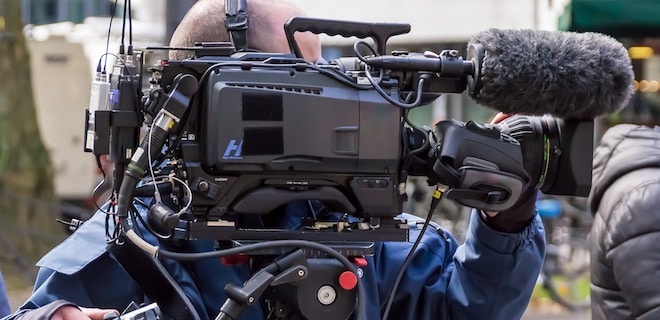It’s nerve-wracking enough to conduct an interview with a print reporter, let alone speak into a camera for a recorded TV interview. But what happens if a media outlet wants to do a live TV interview? Plenty can go wrong, but if done well, you can come off as authentic and leave a lasting positive impression with millions of viewers.
It’s been more than a decade since I was on air and behind the scenes as a local TV producer, anchor and reporter in Seattle, New Mexico and Oregon, but since then, I have helped arrange and prep many people for live TV interviews. Here are a few tips for a successful live TV interview I’ve compiled over the years:
Have fun
One of the best pointers I ever got was don’t look so serious when you’re on TV. While the topic of the interview may be serious, the way you talk doesn’t have to be. Think about how you would talk to your friend. Be animated and show interest. Lean forward in your chair. Viewers won’t be interested or won’t believe what you’re saying If you appear subdued, too calculated or nervous. Lastly, keep your cool. If a reporter starts upsetting you, don’t react like the former quarterback of the Los Angeles Rams did.
Dress for success
Keep to solids and primary colors. Patterns wreak havoc with TV cameras as does black or white clothing, which drains color from your skin. Wear attire that complements your business’s approach and, for the most part, what you wear to work every day. For example, If you work in financial services, wear a suit; if you work for a consumer tech company, something more informal and creative might be appropriate.
Speak succinctly, avoid acronyms
While you might think the most basic industry terms and acronyms are known by everyone, chances are they’re not. Be prepared to talk through a live TV interview like you would with a childhood friend. The best advice one of my TV bosses gave me is write to a 5th grade level. If a 5th grader doesn’t understand what you’re writing, then you’ve lost half the audience.
There are no do-overs
Always assume your microphone is on and that anything you say will make it on TV. Unlike with recorded interviews where you can ask if you can say something over again, live interviews will live in perpetuity. You’d look pretty silly on live TV saying, “Can we do that over again?” Which brings us to the next point, practice over and over.
The separation is in the preparation
When the lights and camera come on, most people’s inclination is to freeze. Walk through a mock interview so when the lights and cameras come on, you are ready for the action.
Prepare for the “tough questions” that would otherwise catch you off guard and make sure the answers you have will work with the rest of your team. You should also have prepared in advance three key points that you want to get across. To that end, rather than be surprised by questions, it’s always nice to be prepared for what a reporter/anchor might ask. Although many journalists are opposed to sending questions in advance, always ask for them.
Despite being prepared with answers, there’s no need to have them memorized word for word; if the interview doesn’t flow for you to get in your three key points, don’t force it. I’ve seen many an interview go sideways because it is apparent they have a script and/or an agenda and nothing is going to stop them from getting to that.

